All about work in Bulgaria for Russians
The topic of employment in Bulgaria has been a controversial subject of discussion for citizens of Russia and the CIS for several years now. On the one hand, since 2007 Bulgaria has been a member of the European Union - only this fact makes it attractive in the eyes of labor immigrants. On the other hand, Bulgaria still remains one of the poorest countries in the EU, the unemployment rate among the local population is about 10%. From this it becomes clear that finding a job in this country will definitely not be an easy task for foreigners, but this is not entirely true. If you carefully consider the process of employment, study the intricacies of legislation and responsibly approach communication with the employer, labor migrants have every chance of getting a decent job with good wages.
general information
Bulgaria began its rapid development in the late nineties. She tried to move away from the Soviet principles of labor organization and equal to Western countries, which really gave impetus to development for several years. In 2007, when Bulgaria joined the EU, it seemed that the hopes of politicians were justified and the country was waiting for significant economic growth. But in 2008, the world crisis destroyed the plans - the unemployment rate began to grow, prices for all types of goods and services began to rise. Despite the fact that by 2017 the Bulgarian government had made a lot of efforts to optimize the situation, in our time there are a number of economic problems that repel foreign workers from the state.
Bulgaria is far from the richest EU stateIn Bulgaria, the unemployment rate last year was 9.2%, which is considered almost shocking by European standards. In 2017, it changed to 7.9%, but the situation is still tense. For this reason, foreign workers face employment problems, because employers always give preference to citizens. Foreigners can get a job in Bulgaria under the following circumstances:
- when starting your own business;
- at the invitation of a Bulgarian company, firm or enterprise (usually concerns specialists of a narrow profile),
- when applying for a job at the labor exchange;
- at the invitation of a private person-employer.
Very often I get on various resources to the posts of those who have moved, who barely make ends meet and live from hand to mouth.
Just a cry from the heart already. Bulgaria is not the kind of country where you can "go into the pool with your head" and "hands on the spot - I will earn money." You won't earn! This topic has been raised many times on the forums in various topics.
It should be noted that Bulgaria mainly consists of the working class. Here, only about 20% of people can boast of having a higher education. Accordingly, only a fifth of the entire population of the country are highly qualified specialists. The rest of the citizens after graduation go to colleges, where they receive technical specialties.
Video: review of life in Bulgaria
The labor side of life in Bulgaria is regulated by international treaties. It follows from this that the conditions for workers-citizens of the country and immigrants must meet European standards. However, in reality, in most cases, reality does not meet expectations. Usually the length of the working day in Bulgaria is 8 hours, the working week is 40 hours. Foreigners will have to give the country about 10% of their income (we are talking exclusively about funds earned in Bulgaria).
According to my feelings, there is no big or significant difference between life in Bulgaria and life in Moscow (I can only compare with Moscow!) - no! The only tangible difference is the pace of life: in Moscow we are constantly in a hurry somewhere: to work, from work, to the store, to the cinema, and even to visit. There is always not enough time, but you need to be in time everywhere! There are no such distances in Bulgaria, everything is close.
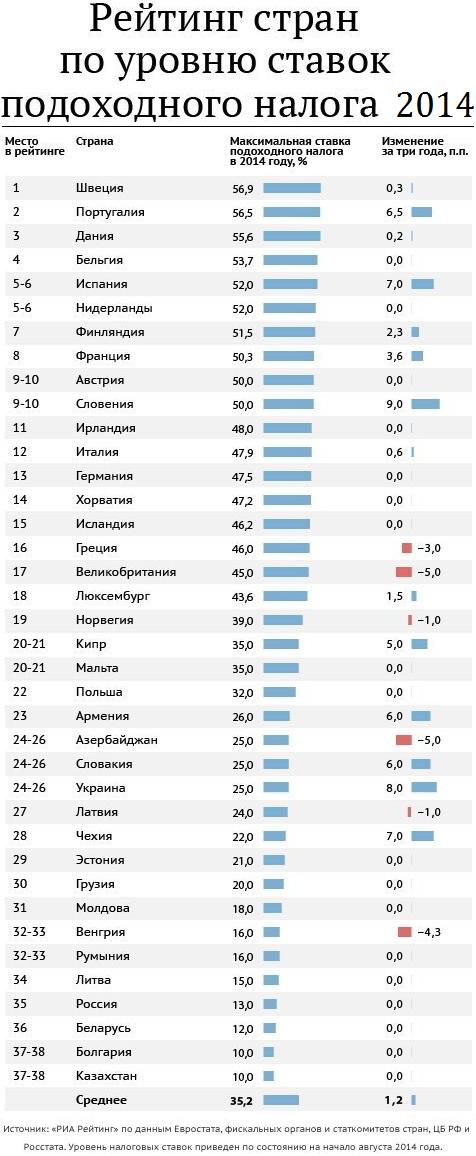 Since the beginning of 2008, the taxation of annual personal income (PIT) in Bulgaria is calculated at a flat rate: 10% (deductions from this tax are also allowed)
Since the beginning of 2008, the taxation of annual personal income (PIT) in Bulgaria is calculated at a flat rate: 10% (deductions from this tax are also allowed) Duration of the working week in Bulgaria: 43.6 hours, longer only in Romania - 45.8 hours, and the shortest in Holland - 32.9 hours! The average working time for EU candidate countries is 44.4 hours, for EU members -38.2 hours.
http://obolgarii.narod.ru/bulgaria/nivozizni.htm
Video: how I make money in Bulgaria, why I moved
How to find a job
As a rule, you can get to work in Bulgaria in two ways: when looking for a job on your own and through the labor exchange. The exchange may be public or private. As practice shows, foreigners are more likely to find work under normal conditions by resorting to the services of a private organization. Although some of them may not be entirely conscientious about their obligations. The meaning of their work is to find a suitable position for a fee without your participation. All you have to do in this process is fill in the necessary paperwork. In addition, in addition to paying for the services of intermediaries, you will have to give them a quarter of your first salary received in the position selected by the agency.
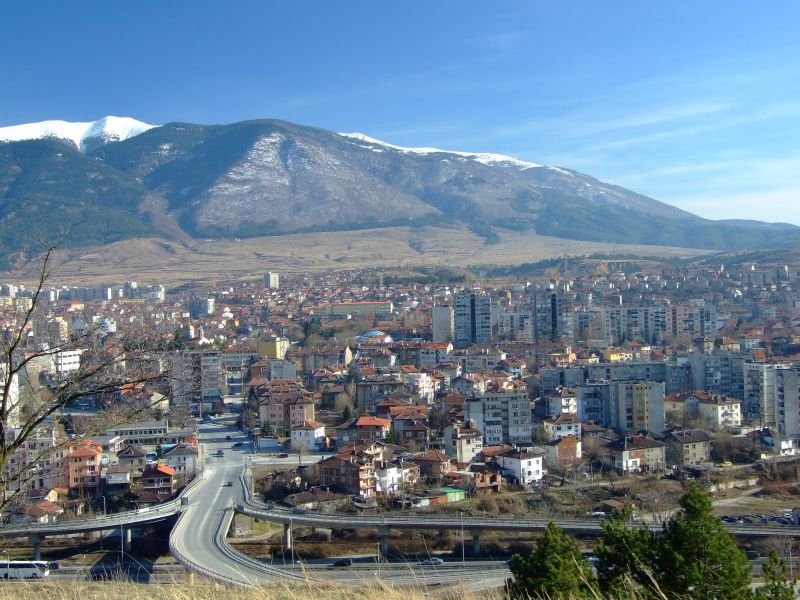 The highest salaries in Sofia
The highest salaries in Sofia An independent job search in Bulgaria involves the analysis of many sources personally by an immigrant. These can be periodicals, television or websites. Newspaper sources include:
- "24 hours";
- "Work";
- "Diary".
In them you will find announcements about what kind of workers are required by local employers. Newspapers can be bought in print, but it is easier to find all the material freely available on their official websites. Analysis of electronic resources can be no less productive. Among the most popular sources are the following:
- worka.bg ;
- www.bglife.ru
- Job agent ;
- Jobs.bg.
You can also try to find a job by contacting the individual organizations "Synthetics Consult" and "Polykontakt", whose task is to help businessmen recruit service personnel and workers of various profiles. The same firms can solve other organizational aspects of private entrepreneurs.
Video: moving to Bulgaria: is it worth moving
What specialties are in demand in Bulgaria
Often, ordinary citizens who want to devote some time to earning the required amount are interested in finding affordable work abroad, after which they plan to return to their homeland. For such people, Bulgaria is unlikely to be a good employment option. The fact is that seasonal work in this country is mainly associated with the resort business and, by definition, does not involve high wages. As a rule, students are accepted for seasonal work, not particularly considering the candidacies of foreigners because of the hassle of registering a workplace for them. Needless to say, there are exceptions to this. For example, people with knowledge of foreign languages can get good money working during the holiday season, but there are enough such workers among the citizens of the country, so foreigners have little chance of finding a job.
 Students who decide to do an internship in Bulgaria should take into account that without knowledge of the Bulgarian language, it is almost impossible to find a part-time job; all you can count on is washing dishes in a cafe or cleaning toilets
Students who decide to do an internship in Bulgaria should take into account that without knowledge of the Bulgarian language, it is almost impossible to find a part-time job; all you can count on is washing dishes in a cafe or cleaning toilets The most demanded specialties in 2017 were:
- mining professionals;
- agricultural and forestry workers;
- builders, repairmen;
- specialists in the field of thermal energy production;
- computer technology specialists;
- hotel and restaurant workers;
- physicians, health workers;
- locksmiths, car repair and assembly specialists.
Salaries
The level of the minimum wage in Bulgaria in 2017 reaches 235 euros - a rather low figure when compared with other EU member states. The average salary reaches 400 euros.
In recent years, workers in the field of information technology have become increasingly in demand in Bulgaria. In order to get a job in this industry, a foreigner will have to prove his professionalism, since foreigners are reluctant to take on a position with high, by local standards, wages. Knowledge of the state and English languages will also be a prerequisite.
As practice shows, there is no significant separation between men and women in employment in Bulgaria (if physical activity is not required). Women, going to work, usually get a job as waitresses or maids for the season, while men more often choose construction professions. It is also not uncommon for immigrant women to be seen in the role of nannies, carers or cleaners of the residential premises of local residents.
 Recently, programmers have become in demand
Recently, programmers have become in demand Separately, it is possible to single out migrants who speak foreign languages (and, ideally, who are their native speakers). These people can earn money by teaching, because in Bulgaria in recent years there has been a trend towards learning foreign languages. The younger generation has high hopes that Bulgaria is a member of the EU, and plan to get a well-paid office job in their homeland or even leave for other EU countries.
Salary depends not only on the specialty and work schedule, but also on the region where the immigrant settled. In the central region and in the south-central regions, wages are considered the highest, on average, people in this part of the country receive up to 500 euros per month. However, there are much more people who want to get a position here, respectively. The lowest wages are observed in the southwestern regions of the state. Cities such as the Riviera, Sofia and Sunny Beach are the easiest places for immigrants to find work, while Vidin, Sliven and Silistra will be the most difficult to achieve.
As a rule, the bourgeois Russians who live here, for the most part, do not know, and therefore, the above specialties are mastered quickly. Especially when the money runs out and the prospect - "Suitcase-station-Russia" is not particularly attractive.
Table: how much do representatives of different professions earn in 2017
| Speciality | Salary (euro/month) |
| Computer techologies | 1050–1200 |
| Insurance agents and financiers | 850–900 |
| Energy industry specialists | around 800 |
| Medical and social workers | 500–550 |
| Civil servants | 500–550 |
| Transport and trade | 450–500 |
| Production workers, builders | 400–450 |
| Employees in the tourism business, entertainment industry | 400–420 |
| Agricultural positions | about 420 |
| Unskilled employees (in the field of cleaning, construction, loading, as well as dishwashers, waiters and others) | 230–300 |
How to get a job in Bulgaria for Russians and not only
As already mentioned, Bulgarian legislation treats labor immigrants rather restrained, controlling the influx of labor into the country. There are not enough ordinary vacancies for the ordinary population, so foreigners cannot count on an ordinary position. You can triple only when you open your own business or with a direct invitation from a Bulgarian employer. The latter option is possible only when a foreigner can offer a narrow-profile specialization. By and large, such cases are quite rare, because among the local residents there are many educated professional employees in a wide variety of industries. However, if you are still confident in your abilities and want to migrate to Bulgaria as a highly qualified specialist, you will first have to clarify all the points with the employer.
... I have been living in BG for more than a year. Obtaining a work permit for a foreigner from the relevant department is rare. I faced such a precedent only once - this is a doctor. He's been pushing for this for a long time. On the same basis, and is in the country - "private practice". This is an isolated case...
http://www.bglife.ru/threads/1199/page-6#post-231736
However, even people with a rare profession may face a number of difficulties regarding legalization. The fact is that from the moment the country joined the European Union, the Bulgarian authorities recognize only European diplomas of education. This means that if you received a specialty in your home country, you will have to confirm your specialization.
 Of the highly qualified personnel, lawyers with a good knowledge of international law, IT specialists in software development firms, system administrators, web content developers, multimedia developers are in demand.
Of the highly qualified personnel, lawyers with a good knowledge of international law, IT specialists in software development firms, system administrators, web content developers, multimedia developers are in demand. Bessarabian Bulgarians have hotel advantages in employment. Ukrainians with Bulgarian roots can easily move to the city of Gurkovo, where separate conditions are offered for this category of immigrants. Of course, Gurkovo cannot be compared with the capital, but a significant advantage of this option is the opportunity to find a job with the whole family - this means that the members of the migrant's family will not be forced to be in the care of one worker for a long time.
I have a friend who is a director and screenwriter. Half-Bulgarian, half-Russian, received a residence permit in Bulgaria with the status of “director of representative office”. Every summer he goes to the sea to work as a waiter - servitor. He agrees with the employer on a minimum salary of 310 leva and provides him with a bed for sleeping, and keeps the tips for himself. So in those establishments where he works as a waiter, vacationers go mainly to look at him and talk to him, and then eat. Well, they eat a lot and tasty. He is a polyglot and his method of service is artistic and he will find an approach to everyone sitting at the table. And to the gloomy Tyumen muzzle and to the old German woman and to the cheerful Finn. And he gets enough tips during the season to buy a small house in Bulgaria. It all depends on how a person approaches work. If you sit and pick your nose, then there will be a shish and not a tip, and the employer will throw you out for such an attitude to work.
https://ushakoff.wordpress.com/2013/09/29/how-to-find-a-job-in-bulgaria-english-e/
Video: everything about life and work in Bulgaria
Visa opening
In order to work in Bulgaria, you need to open a visa at the consulate of the country located in your state. You will need a long-term visa (type D), which will give you the right to stay in Bulgaria for a long time - from 180 days from the date of registration. It does not restrict foreigners from entering or leaving during the period of validity. Required documents:
- completed visa application form;
- medical certificate confirming that the applicant does not have socially dangerous diseases (AIDS, tuberculosis);
- a foreign passport, which at the time of submission of documents will be valid for at least 18 months;
- copies of important pages of the civil passport;
- a color photograph of the applicant of the established size (3.5x4.5 cm);
- evidence of financial solvency, that is, documents confirming that the immigrant has enough money to live in the country;
- documents confirming that the foreigner has a place of residence in the territory of Bulgaria. They can be a rental agreement, evidence of accommodation in a hostel, and so on;
- certificate from the police department about the absence of a criminal record;
- work permit, employment contract.
All documents must be translated into Bulgarian and notarized.
Applications are usually considered for about a month, however, depending on a number of reasons, the period sometimes changes. You may also be asked to submit additional documents if necessary. Take the process of registration and submission responsibly, because errors or inconsistencies in the papers can complicate the opening of a visa or even serve as a reason for refusing to issue it.
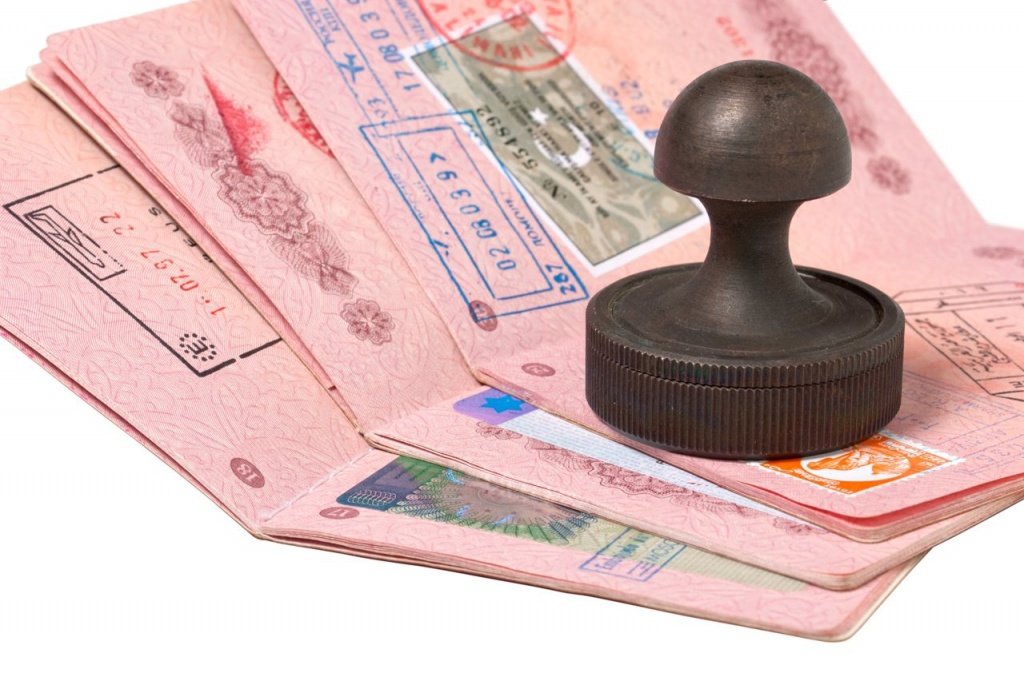 To work in Bulgaria, you will first need to open a visa
To work in Bulgaria, you will first need to open a visa Please note that those foreigners who have employment contracts and a work permit in the country, as well as business start-ups, can apply for a category D visa. People who plan to look for work after moving directly to Bulgaria cannot issue this document. A D visa is also issued by people who travel to the country for the purpose of obtaining education (you must have documents confirming enrollment in a local educational institution), invest certain amounts in the country's economy or plan to move to Bulgaria under a family reunification program (you must provide proof of family ties with citizens of the state ).
Work Permit
The presence of a work permit is a determining factor in the employment of foreigners in Bulgaria, as well as in the legality of their stay in the country. The State Employment Agency of Bulgaria deals with issues related to work permits. Permission can be granted both to specialists who have received a position in one of the local companies, and to foreigners who are on a business trip (it must last more than three months). Usually the document is issued for a period of one year with the right to further extension. Permission not required:
- employees who are in Bulgaria under one of the international agreements;
- holders of permanent residence in Bulgaria;
- family members of immigrants from the EU countries and Switzerland, as well as close relatives of permanent residence holders;
- immigrants recognized as refugees.
In all other cases, a work permit is required. To apply, the employer must submit the following documents:
- declaration of the established form;
- justification for filing the declaration;
- evidence that the foreigner has the appropriate qualifications (diplomas, certificates);
- color photocopies of the main pages of the foreign passport;
- certificates of registration of the employing enterprise in the BCCI;
- an agreement between the host and the specialist (it will enter into force only after the granting of a work permit from the authorities);
- documents certifying the current personnel of the enterprise (it is necessary to testify how many foreigners and citizens of Bulgaria work in the company).
 The work permit will cost the employer 600 leva (approximately 300 euros)
The work permit will cost the employer 600 leva (approximately 300 euros) As a rule, employers in Bulgaria do not seek to attract foreign specialists to their ranks, since the process of registering such personnel can be very difficult. Firstly, not every company wants to give a detailed report on the state of affairs of the enterprise and the number of personnel. Secondly, the process of hiring a foreigner provides a justification why a Bulgarian citizen cannot be hired for this position.
Bulgarian companies do not have the right to hire foreigners if their number already exceeds 10% of the entire state. In addition, the permit will not be issued if the authorities consider that the working conditions or wages for foreigners are lower than for Bulgarian citizens. Also, wages below the minimum threshold are not allowed.
Separately, it is worth highlighting the possibility of obtaining a job with the help of the so-called Blue Card - a document indicating that a foreigner has higher education and experience in a specialty that is in demand in the EU. The Blue Card eliminates the need for employers to explain to the authorities that hiring a specialist Bulgarian citizen in this field is extremely problematic.
An important nuance: recognition of diplomas
I would like to pay special attention to the topic of nostrification of diplomas. The fact is that Bulgaria only recognizes education documents of EU member states. If you studied in Europe, there should not be any particular difficulties with documents in Bulgaria. For Russians and immigrants from the CIS countries, completely different requirements. In order for your university diploma to be recognized, you need to go through a whole procedure.
First of all, you will need to translate and legalize your education documents. This can be done in a competent agency, of which there are many in any major city. Be sure to specify that legalization is also required. The cost of translating one page of a document will cost you about four or five euros, legalization - about 15 euros. You usually have to wait for ready translations within a week, but you can get everything done faster by paying some more money for urgency. Next, you need to take photocopies of the translated diploma and personal card to the National Information and Documentation Center of Bulgaria. You will also need to have a certificate of change of surname with you if the diploma was issued under a different surname. After transferring all the documentation, you just have to wait for the answer of your university. This may take from several days to several weeks. The procedure is free.
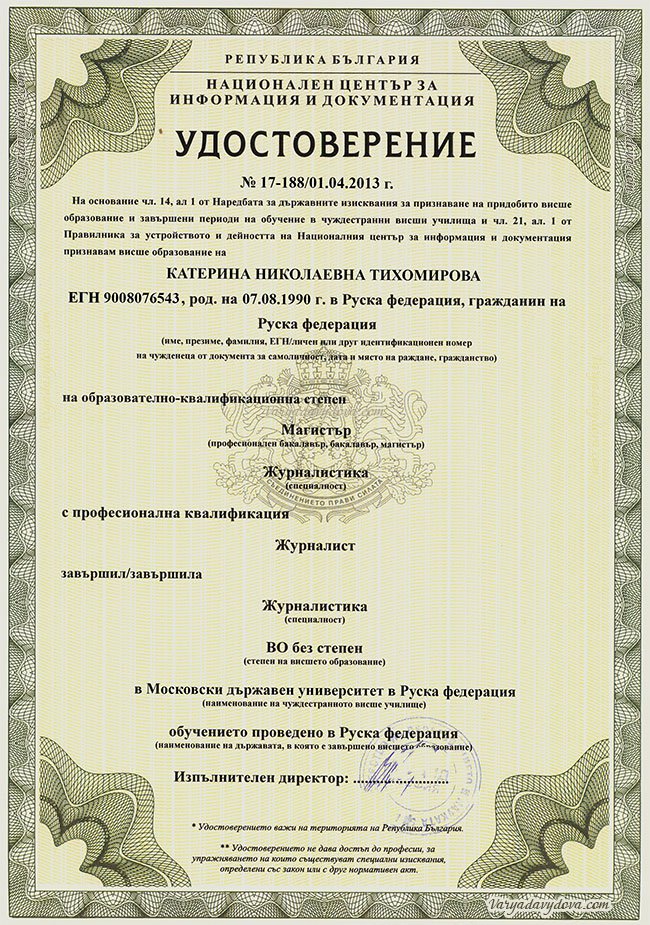 In case of successful confirmation of education, a certificate of recognition of the diploma is issued
In case of successful confirmation of education, a certificate of recognition of the diploma is issued People who have encountered the procedure for legalizing education documents are advised to bring notarized copies of diplomas to specialists, as the originals can be damaged by stitching and processing.
Starting a business
Often, official employment in Bulgaria becomes an impossible task for foreigners. In this case, many of them prefer an alternative option - opening their own business. We are not even talking about the establishment of large companies, the definition of entrepreneurship often means own small shops, shops, kiosks. The most likely to succeed when doing business in Bulgaria are people working in the field of services, sale and rental of real estate, as well as in the tourism sector. As practice shows, registration of the enterprise can take one to two weeks. You can do this both independently and with the help of numerous intermediaries. Bulgarian legislation is quite loyal to foreign entrepreneurs, which creates favorable conditions for starting a business in this country.
You can open your own business, but the likelihood that nothing will work for you is very high. Why? Because the main area of business that visitors want to do is real estate, tourism and services. And this area is already oversaturated or underpaid. It is possible to reinvent the wheel, but it is difficult and most likely it will not be accepted in the local market.
Evgenia
http://peopleandcountries.com/thread-7774–1-1.html
Video: firsthand about doing business in Bulgaria
What threatens illegal immigrants
Trying to avoid difficulties with paperwork, many foreigners are looking for ways to earn money illegally. Indeed, official employment presupposes that an immigrant has the status of a resident of the country, and obtaining it requires a lot of time and effort. This forces foreigners to look for any available ways of earning money, which usually turn out to be illegal. It must be said right away that illegal immigrants can be found on the territory of Bulgaria quite often, especially during the holiday seasons. Nevertheless, we strongly recommend that you do not engage in violation of Bulgarian law, because for illegal work you can get an impressive fine (for the first time - from 500 to 5000 leva, then more). The same fate awaits the employer, only in his case the amount of the fine will be several times greater than that of the employee.
Separately, I want to appeal to the girls who drop everything and come here to their Bulgarian husband. Understand that you will most likely not have a job here. And if it is, then the salary will be less, and sometimes many times less than what you received at home. Therefore, you need to think carefully and find out whether your future husband will be able to provide you with the standard of living that would suit you.
Evgenia
http://peopleandcountries.com/thread-7774–1-1.html
Internship
Questions of internship in Bulgaria are relevant for graduates of educational institutions of various ranks. As a rule, foreigners consider this country as a possible place of internship due to the competence of local institutions. It also seems to many that an internship in the European Union certainly promises great chances to find a good job in the future. Like it or not, it is difficult to judge, but it can be said with confidence that Bulgaria is not one of those countries that create optimal conditions for foreign students and interns. Usually, when it comes to technical or scientific specialties, all expenses for accommodation, travel and the internship itself fall entirely on the shoulders of foreigners. The amounts can be impressive when compared with Russian salaries. Perhaps for this reason, few Russians decide to train in Bulgaria.
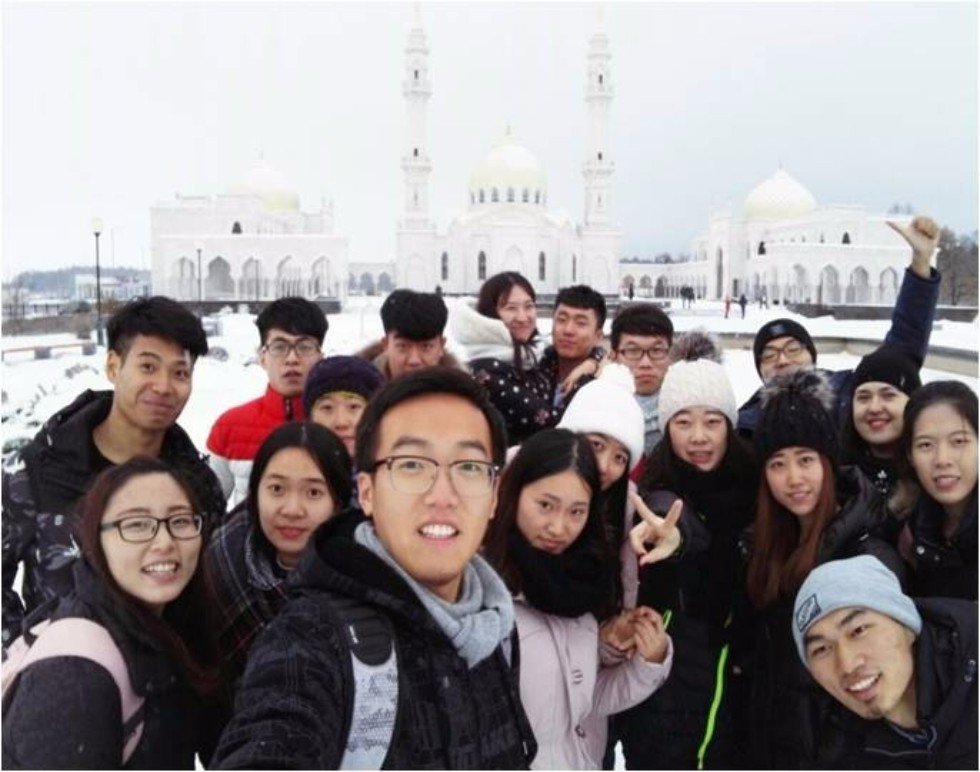 Young professionals have the opportunity to train in Bulgaria
Young professionals have the opportunity to train in Bulgaria An exception may be the sphere of tourism business and trade. Usually, young people who train in this direction are paid a scholarship (about 130 euros), and all travel and accommodation expenses are paid by the host.
In order to go for an internship in Bulgaria, you will need to take a few steps:
- Find the most suitable program, carefully study the requirements for applicants.
- Collect and submit the required documents (the list may vary slightly depending on the program or specialty).
- Issue a visa document for the right to stay in the country.
- Make payment of duties and taxes.
- Pay the cost of the internship itself, if you plan to take the course for a fee.
I, as the spouse of a citizen of Bulgaria, who has the status of a residence permit, also cannot work, because they do not accept, referring to the fact that I do not have the right to work with the status of a residence permit. It remains only to organize something of your own ...
http://peopleandcountries.com/thread-917–1-1.html
Typically, interns need the following documents:
- a certificate from the educational institution, sometimes copies of the student's record book are also required;
- international passport;
- medical certificate of the specified sample;
- a certificate confirming knowledge of the Bulgarian language;
- two photographs: one in full growth, and the second in passport format (3.5x4.5 cm);
- questionnaire - for the consulate;
- application - for participation in the selected internship program.
For a foreigner living on a residence permit, all medicine is paid, the prices are quite high. Quality - there are good doctors and not so good ones. There are modern laboratories and dental offices. There are doctors who speak Russian.
Anonymous
http://techvillage.ru/city/146-varna-bulgaria
Bulgaria is a sunny, benevolent country where a Russian person will not feel out of place, because almost the entire adult population of the state understands the Russian language. However, the closeness of the mentality of the locals and the beauty of the Bulgarian beaches is no reason to consider the country as an ideal place to earn money. Of course, some salaries here may seem quite decent when compared with Russian ones, but before trying to find a job, analyze how much money you will have to spend on accommodation, travel and paperwork. As practice shows, many labor migrants, hoping for big earnings, end up disappointed in this sunny country.




